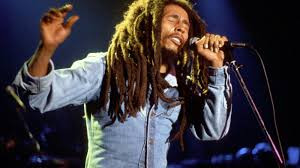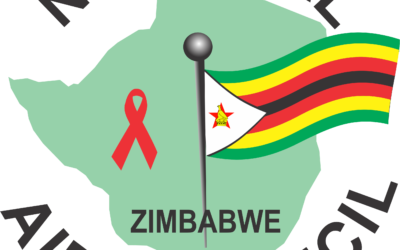
When the late legendary American record producer, Quincy Jones and other American musicians visited Africa, they were shocked to notice that many artistes from the motherland were playing music from Western countries, including the United States: That is funky music, disco music, hip-hop, rap, jazz, reggae and other pop styles. In their hotel rooms, piped music was also of Western type. This is not what these artistes expected from Africa.
Of late Afro-beats seems to have changed that perception. Africans are now coming on board with their own traditional rhythms and Afro-pop styles.
It is through the realisation that being a true and acceptable African does not necessarily mean emulating everything that is Western.
We are now at a stage where Africans can sing in one language and get their music accepted all over the world.
That brings me to the choice of language.
When the Europeans colonised Africa, they did not know how to communicate with Africans. They found a solution. “Teach them to speak English or French and they will understand what we want them to do for us. We will treat those who can speak our language well slightly better than those who cannot.”
That brought about Anglophone and Francophone Africa and the suppression of Africans that followed. Those who spoke good English or good French were viewed as superior and were granted better jobs. The divide and rule tactics began. For as long as these languages are seen as superior in Africa there is no way we are going to ride above this mentality. Africans need one language to communicate among themselves.
When I visited three states in the United States of America, namely New York, Philadelphia and Colorado, I would speak to anyone in English and we would understand each other. Recently, I was in Ivory Coast, Guinea and Mali and found it difficult to talk to people because my French is limited. I needed an interpreter to speak to my fellow Africans.
- Edutainment mix: The artist in the child policy formulation context
- Edutainment mix: The artist in the child policy formulation context
- In the groove: Bob Marley continues to rule from the grave
- Mambo Chivero Zim’s new mbira music ambassador
Keep Reading
In Nigeria, Kenya, Uganda, Malawi, Zambia, Botswana and Zimbabwe, I had no problems because we have all been colonised by the same British colonial masters and we communicate with each other in English language. In my own country where Shona and Ndebele are the two main languages and because of my coming from a Shona background, I cannot communicate fluently in Ndebele. The same thing applies among many Zimbabweans.
For as long as we rely on foreign technologies, philosophies and languages that originate from the west or the east we will never be united as Africans. For as long as we admire and depend on these nations to direct us to what should be trending in the world, we will forever be dependent on these nations to direct our future.
Is it not time the whole of Africa developed its own African language in order to let Africans communicate among ourselves? This thinking has already been pursued by the likes of former Tanzanian president, Mwalimu Julius Nyerere who was a colonial activist, political theorist and educationist and was also determined to introduce the "Africanisation" of the continent.
Swahili is said to be the easiest African language for any other language speaker to learn. It is heavily influenced by Arabic and Indo-European languages such as Portuguese, German, English, and French. It’s one of the few sub-Saharan African languages that have no lexical tone, just as in English.
Nyerere started by directing the teaching of Swahili in Tanzanian schools, Kenyans and Ugandans followed suit. However, with his death in October 1999, that thinking seems to have come to a halt.
Africans need to resuscitate this philosophy, but they should not depend on Europeans to move this thinking forward. Our politicians go to forums like the African Union or United Nations. If they speak no French or English, they are relegated to the use of an interpreter who might not accurately translate the exact meaning of the proceedings. Thus, the African politician is already disadvantaged and continues to accept his/her inferior role. The solution is in the creation of our own African economies and language. We have thousands of different languages, but we have never been united to speak in one language like the British, Americans and French do. Yet there are hundreds of Swahili words that are similar to other African languages. In Shona words such as nzou for elephant, twiza for giraffe, nyama for meat, mbudzi for goat and shumba for lion are easily intelligible in Swahili. These are also found in many African languages.
We have our own wealthy African business people, the likes of Zimbabwean businessman Strive Masiyiwa,, Aliko Dangote, Nigerian entrepreneur, Patrice Motsepe and Mike Adenupe who could be persuaded to sponsor an all Africa music contest where African musicians would be asked to sing their songs in one chosen language (say in Swahili) for a fee of say half a million dollars.
The finals will be staged at a chosen venue in one of the African cities. Knowing musicians the way I do they will learn fast to achieve that goal. The winning song becomes the African anthem.
Whatever song wins, all African governments through their ministries of education, will be persuaded to distribute to all African primary schools where children will be taught to learn that song and language, the same way they learn English, French or Portuguese. So Swahili or whatever language is chosen becomes an additional African language which is universally accepted and understood by all Africans.
After that, the language will be taught to pupils in all schools in Africa. That way we can reach an African language and Africans will communicate easily with each other just like the Americans do. There is no need to fight over whose language is superior
The Chinese are advancing in technology because they use Mandarin as their way to communicate with each other. The do not need English or French like Africans do in order to relate to one another. Although there are dialectal differences, it is Mandarin that is spoken in Beijing and is considered the standard pronunciation for the language as a whole. Chinese people can communicate with each other easily through the use of their Mandarin language.
In Africa, way back in 1963, the Organisation of African Unity (now African Union) was founded. It comprised 32 African states with the main aim of bringing African nations together and to resolve the issues within the continent. By now, we thought that if one African language is taught in all schools throughout Africa, the leaders would be able to discuss issues more freely rather than using interpreters. It does not look like this is sustainable because governments come and go before they implement their developmental goals. The African Union is still yet to achieve this goal.
This philosophy has been on the table for a long time. If you will recall, Bob Marley and the Wailers sang: Africa unite
‘Cause we’re moving right out of Babylon
And we’re going to our Father’s land, yeah
How good and how pleasant it would be
Before God and man, yeah
To see the unification of all Africans, yeah
As it’s been said already, let it be done, yeah
We are the children of the Rastaman
We are the children of the Iyaman
Yes we are one people who are only separated by colonial boundaries.
nFeedback: frezindi@gmail.com










